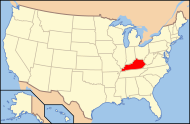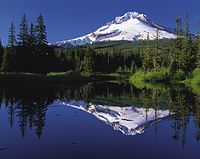
1792
Related subjects: Years
Background Information
Arranging a Wikipedia selection for schools in the developing world without internet was an initiative by SOS Children. Click here to find out about child sponsorship.
| Millennium: | 2nd millennium |
|---|---|
| Centuries: | 17th century – 18th century – 19th century |
| Decades: | 1760s 1770s 1780s – 1790s – 1800s 1810s 1820s |
| Years: | 1789 1790 1791 – 1792 – 1793 1794 1795 |
| 1792 in topic: |
| Subjects: Archaeology – Architecture – |
| Art – Literature ( Poetry) – Music – Science |
| Countries: Australia – Canada – Great Britain – United States |
| Leaders: State leaders – Colonial governors |
| Category: Establishments – Disestablishments |
| Births – Deaths – Works |
Year 1792 (MDCCXCII) was a leap year starting on Sunday (link will display the full calendar) of the Gregorian calendar (or a leap year starting on Thursday of the 11-day slower Julian calendar).
Events of 1792
January - June
- January 9 - Treaty of Jassy ends Russian war with Ottoman Empire over Crimea.
- February 20 - The Postal Service Act, establishing the United States Post Office Department, is signed by President George Washington.
- March 16 - King Gustav III of Sweden shot in the back by Jacob Johan Anckarström at a midnight masquerade at the Royal Opera in Stockholm; he lives until March 29, to be succeeded by Gustav IV Adolf.
- March 20 - A new capital of North Carolina and county seat of the newly formed Wake County is established after North Carolina State Senator and surveyor William Christmas submits his design for the city. A few months later the capital is officially named Raleigh in honour of Sir Walter Raleigh.
- April - France goes to war against Austria and Prussia.
- April 2 - The Coinage Act is passed establishing the United States Mint.
- April 5 - United States President George Washington vetos a bill designed to apportion representatives among U.S. states. This is the first time the presidential veto has been used in the United States.
- April 20 - France declares war against Austria.
- April 21 - Tiradentes, prime figure in the Inconfidência Mineira plot, is executed in Rio de Janeiro, Brazil.
- April 24 - First experimental use of the guillotine in France.
- April 25
- Highwayman Nicolas J. Pelletier becomes the first person executed by guillotine.
- " La Marseillaise", the French national anthem, composed by Claude Joseph Rouget de Lisle.
- May 11 - Captain Robert Gray becomes the first white man to enter the Columbia River.
- May 17 - Buttonwood Agreement is signed, beginnings of New York Stock Exchange
- May 21 - Old lava dome collapses in Kyūshū, Japan when Mount Unzen volcano erupts: resulting avalanche and tsunami kills about 14,300 people.
- June 1 - Kentucky is admitted as the 15th U.S. state and as one of its first orders of business ratifies all twelve articles of the Bill of Rights, including one that is technically still pending for consideration.
- June 4 - Captain George Vancouver claims Puget Sound for Great Britain.
July - December
- August 10 - French Revolution: Storming of the Tuileries Palace - Louis XVI of France is arrested and taken into custody.
- September 2 - During what became known as the September Massacres of the French Revolution, rampaging mobs slaughtered three Roman Catholic Church bishops and more than two hundred priests.
- September 11 - Six men steal some of the former French Crown jewels from a warehouse where the revolutionary government used to store them.
- September 20 - Battle of Valmy - French revolutionary army defeats Prussians under Duke of Brunswick after 7-hour artillery duel.
- September 21 - French convention abolishes the monarchy and establishes the First Republic.
- September 22 - Beginning of the Era of the historical French Republican Calendar.
- October 12 - First celebration of Columbus Day in the USA held in New York; 300 years after.
- October 13 - Foundation of Washington, DC. The cornerstone of the United States Executive Mansion, known as the White House since 1818, is laid.
- October 29 - Mount Hood (Oregon) is named after the British naval officer Samuel Hood by Lt. William E. Broughton, who spotted the mountain near the mouth of the Willamette River.
- December 3 - George Washington is re-elected President of the United States.
- December 26 - Trial of Louis XVI of France begins.

October 13: Washington, DC founded.
Undated
- Baptist Missionary Society is founded in Kettering, England.
- Dominique-Jean Larrey, chief surgeon of the Grand Armee of France, created the first ambulance wagons specifically designed as ambulances.
- Francis II, Holy Roman Emperor, last emperor, takes office.
- Russia invades Poland: War in defence of the constitution.
- King John VI takes over from his insane mother in Portugal.
- Tipu Sultan invades Kerala in India, but is repulsed.
- George Vancouver explores Puget Sound, becomes first European to see Mount Rainier.
- Franz Xaver, Baron Von Zach, an astronomer, publishes "The Tables of the Sun", an essential early work for navigation.
- Claude Chappe successfully demonstrates the first semaphore line, between Paris and Lille.
- William Murdoch begins experimenting with gas lighting.
- George Anschutz constructs first blast furnace in Pittsburgh, Pennsylvania.
- Thomas Holcroft produces the play Road to Ruin in London.
- Barthelemy Catherine Joubert, later general, becomes sub-lieutenant.
- Johann Georg Albrechtberger becomes Kapellmeister in Vienna.
- State Street Corporation is founded.
- Shiloh Meeting House, predecessor of Shiloh United Methodist Church in Lynchburg, Virginia is founded.
- Publication of Mary Wollstonecraft's A Vindication of the Rights of Woman
- First written examination in Europe were held at Cambridge University, England.
Ongoing events
- French Revolution (1789-1799).
- French Revolutionary Wars (1792-1802).
Births
| Gregorian calendar | 1792 MDCCXCII |
| Ab urbe condita | 2545 |
| Armenian calendar | 1241 ԹՎ ՌՄԽԱ |
| Assyrian calendar | 6542 |
| Bahá'í calendar | -52–-51 |
| Bengali calendar | 1199 |
| Berber calendar | 2742 |
| British Regnal year | 32 Geo. 3 – 33 Geo. 3 |
| Buddhist calendar | 2336 |
| Burmese calendar | 1154 |
| Byzantine calendar | 7300–7301 |
| Chinese calendar | 辛亥年十二月初八日 (4428/4488-12-8) — to — 壬子年十一月十八日(4429/4489-11-18) |
| Coptic calendar | 1508–1509 |
| Ethiopian calendar | 1784–1785 |
| Hebrew calendar | 5552–5553 |
| Hindu calendars | |
| - Vikram Samvat | 1848–1849 |
| - Shaka Samvat | 1714–1715 |
| - Kali Yuga | 4893–4894 |
| Holocene calendar | 11792 |
| Igbo calendar | |
| - Ǹrí Ìgbò | 792–793 |
| Iranian calendar | 1170–1171 |
| Islamic calendar | 1206–1207 |
| Japanese calendar | Kansei 4 (寛政4年) |
| Juche calendar | N/A (before 1912) |
| Julian calendar | Gregorian minus 11 days |
| Korean calendar | 4125 |
| Minguo calendar | 120 before ROC 民前120年 |
| Thai solar calendar | 2335 |
- January 12 - Johann Arfvedson, Swedish chemist (d. 1841)
- February 10 - Captain Frederick Marryat, British author (d. 1848)
- February 17 - Karl Ernst von Baer, German naturalist (d. 1876)
- February 29 - Gioacchino Rossini, Italian composer (d. 1868)
- March 3 - Johann Karl Ludwig Gieseler, German church historian (d. 1854)
- March 4 - Samuel Slocum, American inventor (d. 1861)
- March 7 - John Herschel, English mathematician and astronomer (d. 1871)
- April 1 - Karl Gottlob Zumpt, German scholar (d. 1894)
- April 23 - John Thomas Romney Robinson, Irish astronomer and physicist (d. 1882)
- April 25 - John Keble, British poet (d. 1866)
- May 13 - Pope Pius IX (d. 1878)
- May 15 - James Mayer Rothschild, German-born banker (d. 1868)
- May 17 - Anne Isabella Milbanke, English wife of George Gordon Byron, 6th Baron Byron
- May 18 - Margaret Ann Neve, supercentenarian (d. 1903)
- May 21 - Gaspard-Gustave Coriolis, French engineer and scientist (d. 1843)
- June 15 - John Pascoe Fawkner, Pioneer and newspaper publisher in Melbourne, Victoria, Australia (d. 1869)
- June 16 - John Linnell, British painter (d. 1882)
- July 7 - William Henry Smith, British businessman (d. 1865)
- July 10 - George M. Dallas, U.S. Senator and Vice President of the United States (d. 1864)
- June 21 - Ferdinand Christian Baur, German theologian (d. 1860)
- August 4 - Percy Bysshe Shelley, British poet (d. 1822)
- August 13 - Adelaide of Saxe-Meiningen, queen of William IV of the United Kingdom (d. 1849)
- August 18 - John Russell, 1st Earl Russell, Prime Minister of the United Kingdom (d. 1878)
- September 19 - William Backhouse Astor, Sr., American business tycoon (d. 1875)
- September 26 - William Hobson, first Governor of New Zealand (d. 1842)
- October 29 - Thomas Livingstone Mitchell, Explorer and Surveyor-General of New South Wales, Australia (d. 1855)
- November 11 - Mary Anne Evans, wife of Benjamin Disraeli (d. 1872)
- November 28 - Victor Cousin, French philosopher (d. 1867)
- December 1 - Nikolai Ivanovich Lobachevsky, Russian mathematician (d. 1856)
- December 6 - William II of the Netherlands (d. 1849)
- date unknown - Matteo Carcassi, Italian musician and composer (d. 1853)
Deaths
- February 23 - Sir Joshua Reynolds, British painter (b. 1723)
- March 1 - Leopold II, Holy Roman Emperor (b. 1747)
- March 3 - Robert Adam, British architect (b. 1728)
- March 10 - John Stuart, 3rd Earl of Bute, Prime Minister of the United Kingdom (b. 1713)
- March 29 - King Gustav III of Sweden (assassinated) (b. 1746)
- April 3
- George Pocock, British admiral (b. 1706)
- John Montagu, 4th Earl of Sandwich, English statesman (b. 1718)
- April 4 - James Sykes, American politician (b. 1725)
- April 14 - Maximilian Hell, Slovakian astronomer (b. 1720)
- April 23 - Karl Friedrich Bahrdt, German theologian and adventurer (b. 1741)
- April 30 - John Montagu, 4th Earl of Sandwich, English statesman (b. 1718)
- May 10 - John Stevens, American delegate to the Continental Congress
- May 12 - Charles Simon Favart, French dramatist (b. 1710)
- May 24 - George Brydges Rodney, 1st Baron Rodney, British naval officer (b. 1718)
- June 4 - John Burgoyne, British general (b. 1723)
- July 3 - Ferdinand, Duke of Brunswick (b. 1721)
- July 18 - John Paul Jones, American naval captain (b. 1747)
- July 29 - René Nicolas Charles Augustin de Maupeou, Chancellor of France (b. 1714)
- August 5 - Frederick North, Lord North, Prime Minister of the United Kingdom (b. 1732)
- August 25 - Jacques Cazotte, French writer (b. 1719)
- September 3 - Princesse de Lamballe, French friend of Marie Antoinette (murdered)
- September 8 - Charles d'Abancourt, French statesman (b. 1758)
- September 18 - August Gottlieb Spangenberg, German religious leader (b. 1704)
- September 25 - Adam Gottlob Moltke, Danish statesman (b. 1710)
- October 7 - George Mason, American patriot (b. 1725)
- October 22 - Guillaume Le Gentil, French astronomer (b. 1725)
- October 28
- Paul Möhring, German physician and scientist (b. 1710)
- John Smeaton, English civil engineer (b. 1724)
- December 15 - Joseph Martin Kraus, Swedish composer (b. 1756)
- date unknown - Muhammad ibn Abd-al-Wahhab, Arabic preacher (b. 1703)





